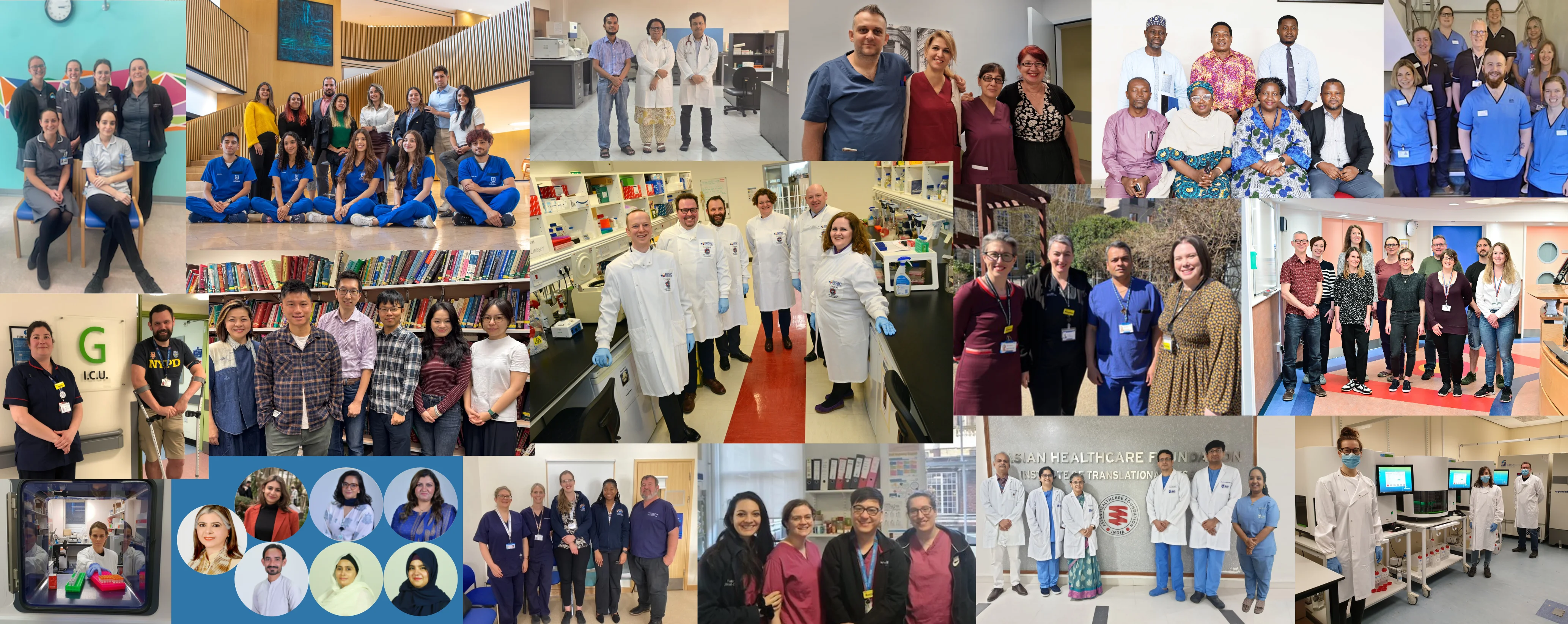...
participants have now been recruited to GenOMICC worldwide.


Recruiting participants since 2015, we are aiming to use genetics to find new treatments for devastating problems such as sepsis, acute respiratory distress syndrome (ARDS), influenza, Group A Strep and pancreatitis.
GenOMICC is the biggest consented critical care research study in history. It is the only critical care or infectious disease genetics study ever to directly lead to a new effective drug.
Our genes (or DNA) determine how resistant we are to disease. Vulnerability to infection and death from critical illness are strongly affected by genetics. We aim to discover specific genes that control the processes of life-threatening illness, and can cause some people to be more sick. If we understand these processes, we think we’ll be able to design better treatments for patients in the future.
To do this, we need to compare the DNA of critically-ill patients with that of healthy volunteers to find out where they are different. We need thousands of people to take part by contributing a single DNA sample. The more participants, the better. Seeing the same pattern over and over gives us a strong signal, leading us to the parts of the DNA that matter. If you are a participant, relative of a participant or thinking about joining our study to help save future lives, please visit our patients and relatives section to learn more.
During the COVID-19 pandemic, we demonstrated that GenOMICC can deliver quality information at great speed during a serious disease outbreak:
In a world first for infectious disease, we used patient genetics to identify that the drug baricitinib could help against critical COVID-19. This led to the direct inclusion of the drug in a research trial. The trial confirmed it is an effective treatment.
We discovered our first findings within 5 months.

We found 75% of findings faster than other genetic studies.

50% of the total information discovered by genetic studies was found by us.
GenOMICC is an international community of clinicians, scientists and research study experts. In an interconnected world, disease outbreaks can quickly become a global problem – and require an international response. We aim to strengthen global outbreak preparedness by forging collaborations and helping to build research capacity in low- and middle-income countries. That another pandemic will happen is a question of when, not if. By building a strong response network now, we will be ready to move fast during the next outbreak.
Future pandemics are not the only reason it is vital to recruit globally. Diverse participants increase our chance of making discoveries, because small genetic effects can be different between ancestries and ethnic groups. Additionally, few patients are critically-ill with a specific infection at any given time. We need to recruit over a large area, and for a long time to reach enough participants.
We think that global collaboration, openness and sharing of data between researchers will enable important progress in critical care medicine worldwide. In this spirit, we are openly sharing our study documents and will support investigators in new regions to establish and lead local research studies. Our motivation is to lay the foundations of effective global collaboration in critical care research, while empowering local leadership of the research programme.
As you can see from our testimonials, GenOMICC is light, pragmatic and extremely effective at scale. If you would like to learn more please visit our subpage for investigators to read our study documents or have a look at our scientific rationale.
